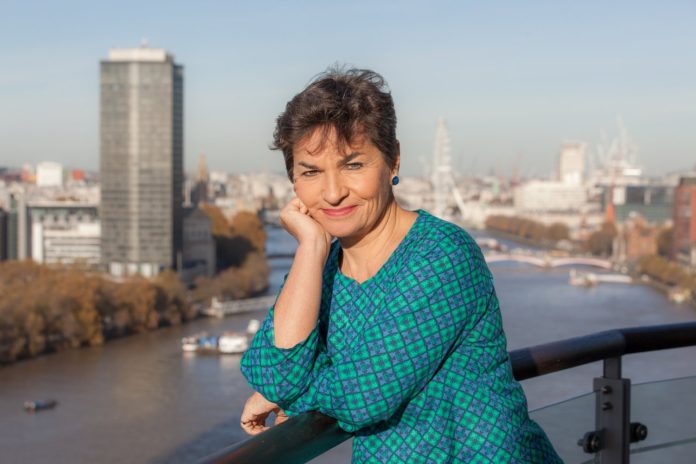Bad news about our planet can paralyse us, says former UN climate chief Christiana Figueres. Instead, it’s time to focus on the opportunities in tackling climate change. She explains why ‘radical collaboration and relentless optimism’ could make 2020 a turning point
By all rights, Christiana Figueres should be sitting with her feet up, sipping piña coladas in the shade of a palm tree in her native Costa Rica. She is not. Far from it, in fact. A year and a half after stepping down as the United Nations’ top climate negotiator, she is as active as ever.
Under the umbrella of the new Mission 2020 initiative which she is heading up, 61-year-old Figueres is ploughing her abundant energies into “bending the curve” on emissions, as she puts it. If that sounds vaguely familiar, that’s because it is.
Spirited and outspoken, Figueres is not one to shun the spotlight or duck a fight. In as much as any single person could be said to be the face of the landmark Paris climate agreement, it is her. And “bending the curve” – that’s to say, taming greenhouse emissions so that average global temperatures remain below 2°C above pre-industrial levels – is what the Paris agreement is all about.
Care about how media shapes our world?
So while Figueres may no longer be banging diplomatic heads together, she has not changed her spots. Fighting manmade climate change remains her all-consuming goal in life.
“It is us human beings who caused climate change and it’s only us who can do anything about it. And it’s only now that we can do anything too,” she says, her voice quivering with urgency.
She has lost none of her steeliness, either. Battling climate action down the road is simply not an option, she insists. To do so is as morally unconscionable as it is ecologically unacceptable. “We cannot pass this on to the next generation. They have had absolutely no role in creating the conditions for climate change.”
It is us human beings who caused climate change and it’s only us who can do anything about it
So what has changed about the post-Paris Figueres? More than you might think. The most obvious shift relates to her audience. Before, it was an influential, yet tiny, cadre of global political leaders on whom her persuasive talents were targeted. Now, it’s basically everyone on the planet – with those in advanced, consumption-heavy economies at the top of her list. “Everyone…










